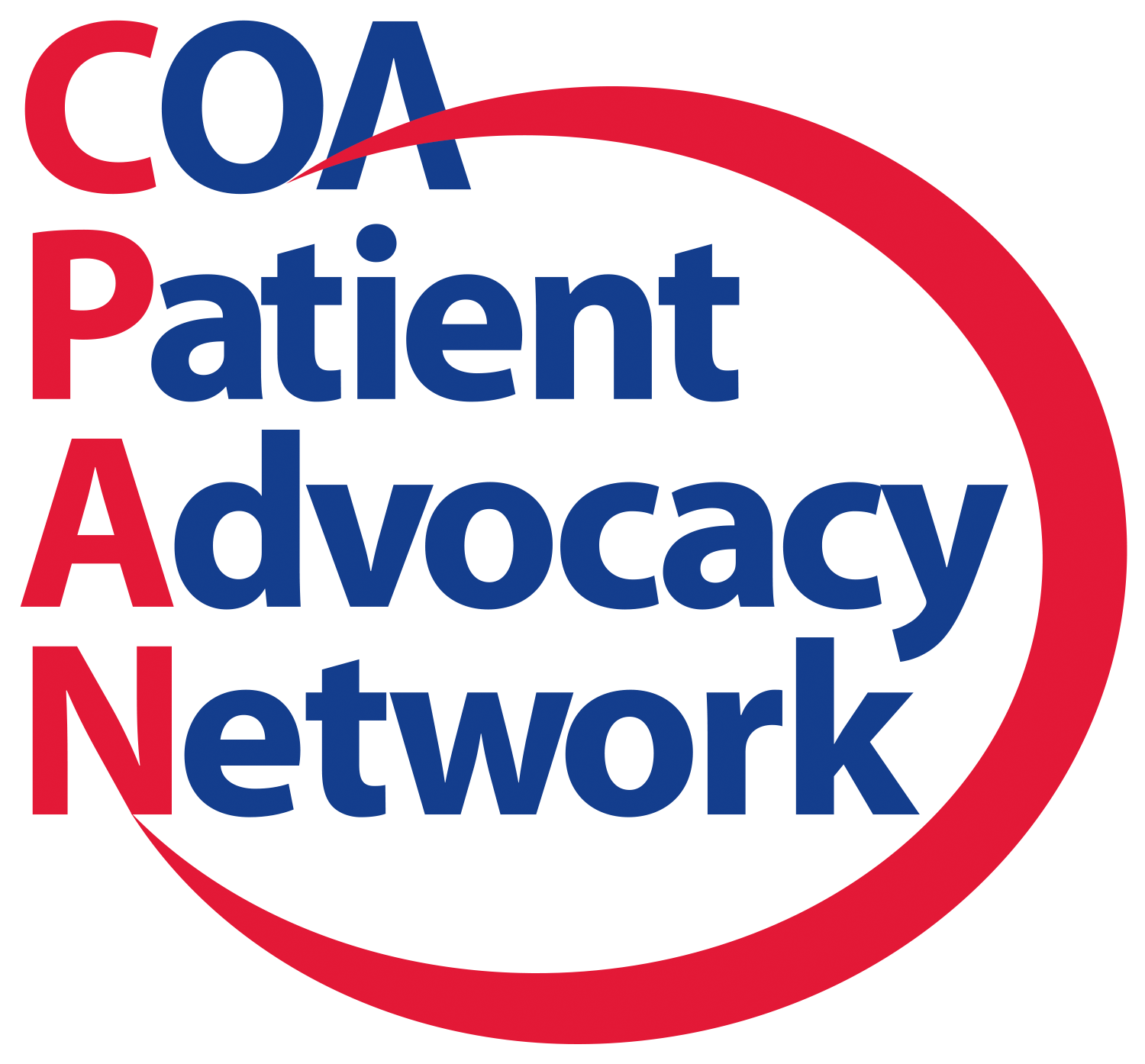
CPAN Quarterly News Bulletin – June 2025

Key Takeaways
- The COA conference's advocacy track focused on community oncology, policy understanding, and the power of storytelling in advocacy.
- Dr. Debra Patt highlighted policy barriers to innovative cancer treatments in her testimony before Congress.
A Note from the Director of Patient Advocacy & Education
The advocacy track made a much-anticipated return to COA’s annual Conference in April. Cancer survivors, caregivers, and CPAN chapter leaders representing 17 community oncology practices nationwide gathered to learn about COA and COA’s advocacy issues and learn from each other.
The two-day advocacy track began with Get to Know Your Fellow Advocates, designed to inspire participants and remind them that everyone can be a powerful advocate. Through sharing personal stories, we were all reminded that cancer does not define a person. It was a very special session!
The advocacy track sessions—attended by advocates and general attendees over both days—included the importance of preserving community oncology and why it matters to people living with cancer before moving on to understanding policy and the fundamentals of advocacy. A session on the power of storytelling taught us how one’s story could drive change, and a session on how to effectively share your story with the media tied everything together.
Sincerely,
Rose Gerber, MS
COA Director of Patient Advocacy & Education
Upcoming Advocacy Opportunities: CPAN Advocacy Chats – Educational Conversations on Cancer Advocacy and Policy
9/10/2025 Equity First: Addressing Food Insecurity at the Community Level
Join the COA Patient Advocacy Network (CPAN) on Wednesday, September 10, at 12 p.m. ET to learn how community oncology is uniquely positioned to help patients access food by partnering with local organizations and reaching those in need.
COA’s Director of Patient Advocacy and Education and Advocacy Chat host, Rose Gerber, MS, and the Director of Practice Support, Shiela Plasencia, will explore the link between food insecurity and health equity, the role that community oncology practices can play, and how your practice can connect with food banks and equity-first organizations to ensure patients are receiving the food they need to successfully fight cancer.
Register here:
10/8/2025 Cancer Care Hijacked: How PBMs are Blocking Your Access to Medication
Join the COA Patient Advocacy Network (CPAN) on Wednesday, October 8, at 12 p.m. ET. COA’s Director of Clinical Initiatives, Christine Pfaff, MBA, RPh, will join host Rose Gerber, MS, Director of Patient Advocacy and Education and Advocacy Chat to discuss the impact Pharmacy Benefit Managers (PBMs) has on your medical access. Visit our website to learn more:
Health Policy 101: COA President Dr. Debra Patt Testifies Before the U.S. House of Representatives
Community oncology’s innovative cancer treatments are leading to better outcomes, but some policies are limiting patients’ access to these treatments. COA President and Executive Vice President of Texas Oncology Debra Patt, MD, PhD, MBA,
“Every day, as oncologists, we see patients who simply cannot afford their treatments. Our job as physicians includes advocating for our patients and doing whatever is possible to make their treatments as affordable as possible,” said Dr. Patt. “Our patients who are struggling with the affordability of cancer treatment depend on us.”
Watch Rick's Advocacy in Action Story [45 Seconds]
“Getting my medication on time and dealing with my insurance was actually harder than dealing with my cancer,” said Rick, a cancer survivor and CPAN advocate. He speaks up for independent community oncology so other people living with cancer can focus on their treatment.
How do you support people living with cancer?
Recap Recent CPAN Advocacy Chats
Engaging conversations with cancer advocates, survivors, and professionals from around the country on community oncology’s most pressing topics.
June: Cancer is a life-changing event. When families, friends, and providers understand an individual’s journey, they can better support people living with cancer and survivors. Shelley Fuld Nasso, MMP, CEO of the National Coalition for Cancer Survivorship, joined Rose Gerber, MS, to discuss
May: Oncology nurses are integral to the cancer care team supporting people living with cancer. During National Oncology Nursing month, Shannon Besselman, RN, BSN, clinical manager at Northwest Medical Specialties, discussed
April: State-level pharmacy benefit manager (PBM) reform has gained momentum in 2025 - most notably in Arkansas, where a new law would improve patient access to affordable treatments. COA Director of State Regulation and Policy James Lee joined Rose Gerber, MS, to discuss PBM reform and other
Cancer News You Can Use
What Community Oncologists Should Know About “Bellwether” for PBM Reform - Oncology News Central, 05/06
Although more lawmakers in Congress are learning how PBMs affect patient care, legislative success is happening at the state level. Policy experts discussed three laws in Arkansas that could guide future PBM reform efforts during the COA 2025 Community Oncology Conference.
Women Who Survive Cancer Are More Likely Than Men to Have Fatigue and Depression - NBC News, 04/29
Women who survive cancer are more likely to experience cancer-related fatigue and depression than men, according to research presented at the American Association for Cancer Research’s annual meeting. The study found that, compared with male survivors, female cancer survivors were 69% more likely to report cancer-related fatigue and 58% more likely to report depression.
Advanced Cancers Returned To Pre-Pandemic Levels, According to a Reassuring Report - Associated Press, 04/22
Many people living in America were forced to postpone cancer screenings for several months in 2020 as COVID-19 overwhelmed doctors and hospitals. But delays in screening have not impacted cancer death rates and late diagnoses have stayed consistent, according to a report published in the American Cancer Society’s Cancer journal.
Resources for Chapters
Ensure policymakers understand how independent community oncology delivers local, high-quality cancer care. Invite policymakers with COA’s
View in browser:




